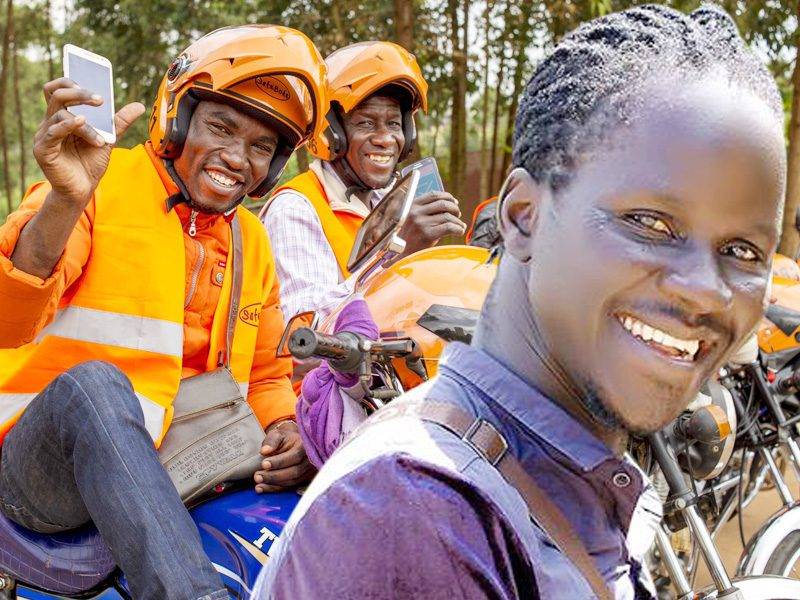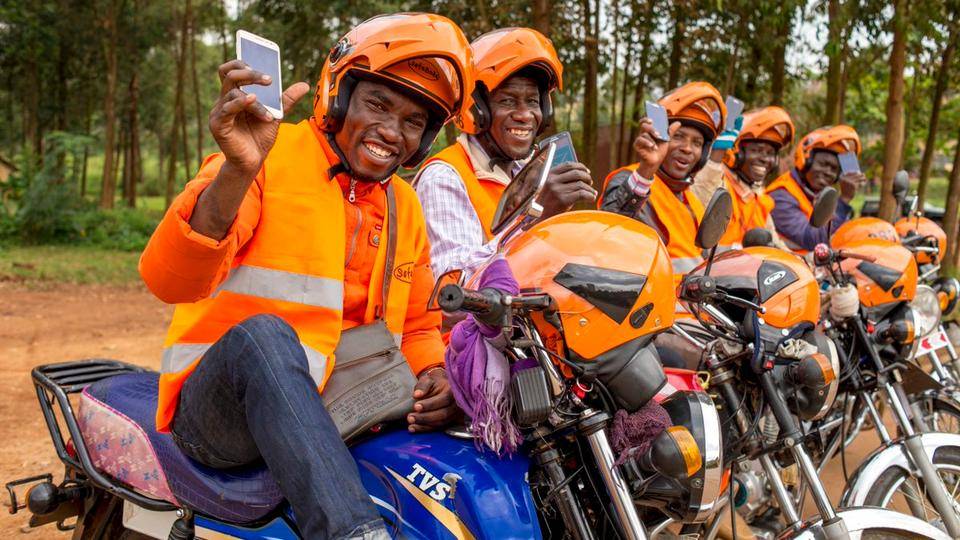2 Weeks After Launching In Nigeria, SafeBoda Hits 1 Million Users – Here’s How The Startup Went From Zero To A Million

Before 2014, Ricky Rapa Thomson was just a Boda Boda rider. “Boda Boda” is what people call commercial motorcycles in most parts of East Africa, but Ricky was not your average Boda Boda rider.
Aware of the safety concerns associated with the widely popular motorcycle taxis in Uganda, Ricky was determined to never be part of the statistic.
According to the Ugandan annual crime and traffic/road safety report, about 3,343 road deaths were registered in 2011. Although the World Health Organisation (WHO) estimates a figure that more than doubles that, Boda Boda is the major contributor on both counts.
Additionally, a United Nations (UN) special report about safety on Ugandan roads shows that at least 10 people die daily on Kampala roads due to Boda Boda accidents.
Those are the statistics Ricky was wary of when he went out of his way to spend the little money he could gather from several days of work on buying a second helmet for his passengers. He also resolved to adhere strictly to a number of safety regulations.
By doing these, Ricky’s efforts caught the eye. It was clear that this was not just another Boda Boda rider. Before long, he grew his customer network beyond himself as a single person could handle.
It soon became a matter of necessity to “make many copies of himself.” As time went by, Ricky came up with the idea of recruiting more riders like himself on the street and giving them the required training and equipment so that they could become more trusted.
But then, he couldn’t do it all by himself — the financial and technical capabilities were too enormous. So, he related the idea to some individuals who were, in fact, his Boda Boda customers.
Belgian Maxime Dieudonne and Briton Alastair Sussock had previously worked in Rwanda, where the Boda Boda system seemed more organised and relatively safer.

It was this duo who teamed up with Ricky to launch the Ugandan startup known as SafeBoda in 2014, which has since expanded into Kenya, and more recently, Nigeria.
On Monday, March 16, SafeBoda announced that it had clocked 1 million users in total since launching, and this was only a fortnight after its long-awaited launch in Nigeria finally happened.
It was a milestone, a landmark event that began right there on the streets of Kampala, through Nairobi, Kenya, and down to Ibadan, Nigeria.
By drawing expertise and experience together, the trio of Ricky, Maxime, and Alastair built not just an app but a sort of super-app business in Uganda that is no match for even the likes of Uber and Bolt. In Uganda, SafeBoda enables people to not only order rides but also make payments, send packages, and order food.
It was no cakewalk, though. In Uganda, President Yoweri Kaguta Museveni, who has been in power for the last 34 years, imposed a tax which pretty much restricts internet usage and access. An estimated 5 million Ugandans lost access to the internet because of the tax.
Also, Uganda is ranked 15th in Africa in terms of internet penetration, which stands at 31 percent. Additionally, the cheapest amount of money one can spend on broadband mobile data is 500 Ugandan shillings (USD 0.13) which can buy one only 50 MB of data.
Besides that, Uganda has no addressing system except in the Central Business District (CBD) which is really a small section of Kampala, and this report claims that only one in six Ugandans have bank accounts, making mobile money very popular though the government taxes that too.
The challenges of setting up an internet-enabled business like SafeBoda were certainly there from the onset, but so were the opportunities.
Unfazed, the trio got things started from the path of least resistance and they have come a long way since then.
By offering competitive prices — sometimes, much lower than informal Boda Boda — and by cultivating a reputation for convenience and safety, SafeBoda took Uganda.
At first, it didn’t seem like they would get very far as people tend to shun change at first. But presently, the app sees over 40,000 rides daily in Uganda’s central business district and now also offers other services besides bike-hailing. And it’s a good sign that it has expanded into new markets too.

At the moment, cost-per-minute in Uganda is about 50 Uganda shillings (USD 0.013), while the cost per kilometres is about 700 shillings (USD 0.19).
SafeBoda earns through commissions, retaining 15 percent of the total cost of a single ride. While the path to profitability seems like a very long walk, growth is not hard to see.
In Ibadan, Nigeria, where it launched two weeks ago after a nine-month-long wait, the startup will be hoping to pull off a Kampala, though the first-mover advantage that contributed to its success in Uganda is not available this time around.
Plus the unpredictable and unstable regulatory landscape that dealt a severe blow to bike-hailing startups in nearby Lagos earlier this year is another concern.
SafeBoda Nigeria’s Head of Marketing, Olumide Akinsola, told WeeTracker that the company plans to grow as big as possible.
“We plan to grow as big as creativity and innovation allows while ensuring that we keep true and stay real to our ethos,” he said.
“Our strategy is the same everywhere: create value by providing services that people need, while also building a brand that people can own, and that they can be a part of.
“This is the secret to the success of the business over the years and it’s the same model that we adhere to in all our markets.”
According to Akinsola, SafeBoda Nigeria currently has operations only in select areas in Ibadan and while expanding to other parts of Nigeria is a definite proposition, all efforts are currently being channeled towards building out the company in Ibadan, Oyo State, South-Western Nigeria.